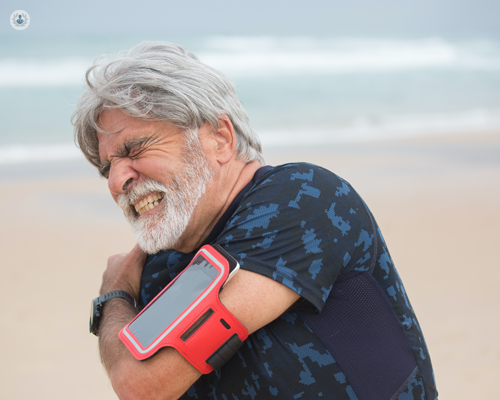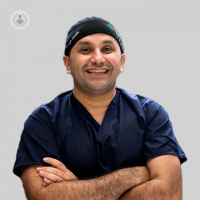Managing shoulder arthritis: Strategies for relief
Written in association with:Shoulder arthritis, a condition characterised by the degeneration of cartilage in the shoulder joint, can lead to pain, stiffness, and reduced mobility. Effective management of shoulder arthritis involves a combination of lifestyle modifications, medical treatments, and therapeutic exercises. In this article, esteemed consultant orthopaedic surgeon, Professor Mohamed Imam, discusses further.

Lifestyle modifications
Adopting a healthy lifestyle is crucial in managing shoulder arthritis. Maintaining an optimal weight reduces stress on the shoulder joint, alleviating pain. A balanced diet rich in anti-inflammatory foods like fish, nuts, and leafy greens can help reduce inflammation. Avoiding activities that strain the shoulder, such as heavy lifting, is also important.
Medical treatments
Medical interventions play a significant role in alleviating symptoms of shoulder arthritis. Over-the-counter pain relievers like acetaminophen and nonsteroidal anti-inflammatory drugs (NSAIDs) can help manage pain and inflammation. In more severe cases, corticosteroid injections may be administered to reduce inflammation and provide relief. Physical therapy is often recommended to improve shoulder strength and flexibility, preventing further joint damage.
Therapeutic exercises
Regular exercise tailored to enhance shoulder function is essential. Range-of-motion exercises can help maintain and improve joint flexibility. Strengthening exercises, particularly those targeting the rotator cuff muscles, can support the shoulder joint and reduce pain. It's important to start with gentle exercises and gradually increase intensity under the guidance of a physical therapist.
Alternative therapies
Some individuals find relief through alternative therapies such as acupuncture, massage, and the use of heat or cold therapy. These methods can complement traditional treatments and provide additional pain relief and relaxation.
Surgical options
When conservative treatments fail to alleviate symptoms, surgical options may be considered. Procedures such as shoulder arthroscopy, which involves cleaning out the joint, or shoulder replacement surgery, can provide significant relief and restore function.
To book an appointment with Professor Mohamed Imam today, visit his Top Doctors profile.


